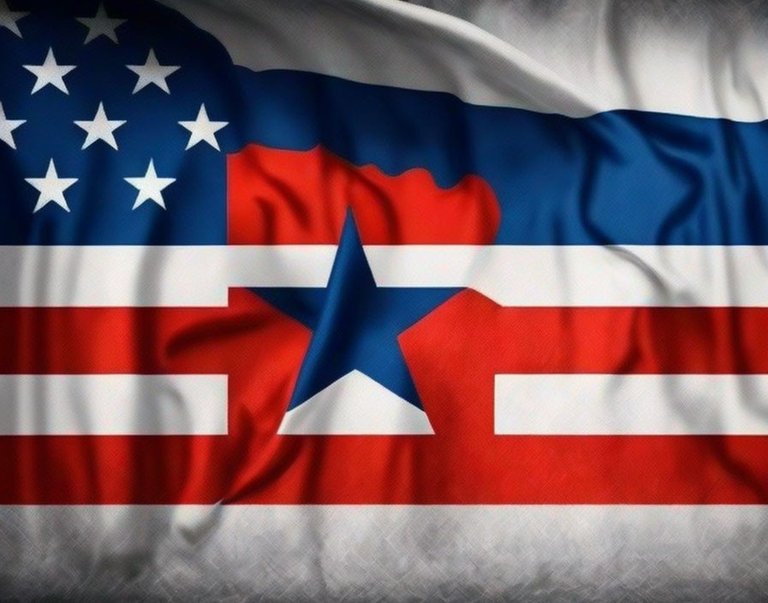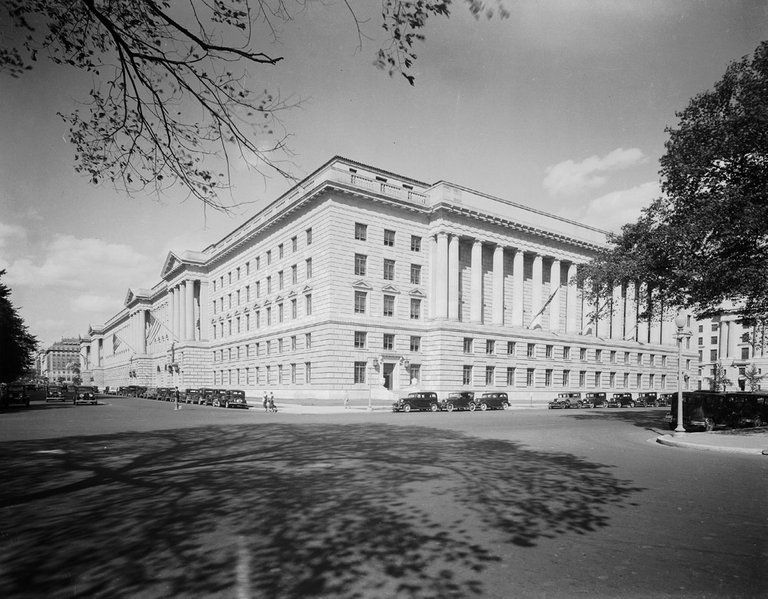Opportunities for US-Cuba engagement within the current legal framework (II)

"Opportunities for US-Cuba engagement within the sanctions regime" (Source).
If the OFAC regulations aimed at Cuba —dealt with here from the perspective of permits and licenses with a positive connotation to facilitate bilateral relations with the United States— are little known in their concrete legal expression, those administered by the Commerce Department's Bureau of Industry and Security (BIS) are even less alluded to. Its essence is quite prohibitive, but it offers possibilities that I don't know to what extent the Cuban government has been proactive in taking advantage of them, let alone regular people's knowledge about the issue.
In view of the lack I find on the latter and its importance, instead of moving only through the licenses that enable certain exports of U.S. items to Cuba, I will make a general introduction to the BIS's Export Administration Regulations as they relate to the Island. These were generally promulgated under the authority of the Export Administration Act of 1979, although they are now in force under the Export Control Reform Act of 2018.
Section § 730.6 describes that "[the] export control provisions of the EAR are intended to serve the national security, foreign policy, nonproliferation of weapons of mass destruction, and other interests of the United States". Its scope is very broad, including the following items (commodities, software, and technology): 1) all those in the United States —including those in transit to a third country— or in a U.S. Foreign Trade Zone; 2) all U.S.-origin items regardless of their geographic location —where the extraterritorial character of these regulations begins—; 3) all commodities produced abroad that incorporate commodities controlled by the United States or "that are 'bundled' with controlled U.S.-origin software"; software developed abroad “commingled with controlled U.S.-origin software”; and technology produced abroad "commingled with controlled U.S.-origin technology" (all subject to percentage specifications); 4) certain foreign-made products employing U.S. technology or software; and 5) certain commodities produced by a plant in a third country that uses U.S. technology or software.

A historical photo from the U.S. Commerce Department (Source).
Paragraph (4)(iii) of subsection § 730.8(a) contains the first reference to Cuba in the EAR. It states that a BIS license is required for virtually all exports to embargoed destinations such as Cuba, and also that we must refer to 15 CFR Part 746 for all "licensing requirements, license review policies and License Exceptions that apply to such destinations". As we review its section § 746.2, which focuses on Cuba, we must necessarily appeal to other parts of the EAR, based on the references to certain licenses and other sanctions that apply to this nation and are not described there.
Current EAR's License Exceptions applying to Cuba
Subsection § 746.2(a)(1) of the EAR lists a group of items that may be exported or re-exported to Cuba —without requesting permission from BIS— as long as all the requirements and conditions of 12 licenses described in 15 CFR Part 740 (License Exceptions) are met. Below are the ones I consider most relevant:
Operation technology and software for legally exported commodities or software. According to the License Exception TSU specifications, "operation technology" means the "minimum technology necessary for the installation, operation, maintenance (checking), or repair of those commodities or software that are lawfully exported or re-exported".
Sales technology, understood as "data supporting a prospective or actual quotation, bid, or offer to sell, lease, or otherwise supply any item".
Software updates for legally exported software, subject to the conditions set forth herein.
Parts "for one-for-one replacement in certain legally exported commodities", as authorized in the License Exception RPL (see in this link that I have just referred that the scope of the license is limited for the Cuban case, as it does not include "components", "accessories", or "attachments").
"Gift parcels and humanitarian donations". This includes, subject to the conditions described in subsection § 740.12(a), shipments —free of cost to the recipient— of food, medicines, medical devices and supplies, clothing, among other commodities, which "must be acceptable in type and quantity by the recipient country for import as gifts".
As a restriction that only concerns Cuba, no item listed in the Commerce Control List (CCL) may be sent to the Island under this license unless it is referred to in § 740.19(b) (related to the field of information technology); also listed in § 740.12(a)(2)(v) are the ineligible recipients —all Cubans—, including high-ranking government officials and politicians. On the positive side, and this is an aspect that is also unique to Cuba, it is noted that there is no limit on the frequency of exporting food gift parcels. The humanitarian donations are described here.Certain aircraft and vessels on temporary sojourn; "equipment and spare parts for permanent use on a vessel or aircraft, and ship and plane stores" (in correspondence with the License Exception AVS). I am sure it is difficult for many to understand the takeoff of an aircraft from the United States to any destination within an export regulation, but that is how it works in that case and for vessels as well.
The AVS license, for example, blocks the departure of an aircraft or vessel registered in a third country that has been on a temporary sojourn in the United States if it has been sold or transferred operational control there to a Cuban national, or intends to depart for that purpose. In the same restrictive sense, civil aircraft not covered in § 740.15(a)(2)(i) may not fly into Cuba unless licensed to do so. In addition, among the criteria for a flight or vessel voyage to qualify as a temporary sojourn is that the aircraft or the vessel are not leased to or chartered by a Cuban national.EAR99 agricultural commodities subject to the terms and conditions of License Exception Agricultural Commodities (AGR), exclusive for Cuba. Those items in the scope of the EAR but unlisted in the CCL are classified as EAR99. This license is connected to the Trade Sanctions Reform And Export Enhancement Act of 2000 (TSRA), allowing the export of U.S. agricultural products to Cuba, but with the restrictions described in § 515.533(a)(4) of the Cuban Assets Control Regulations, which, let us remember, are administered by OFAC and contain the essence of the application of the U.S. sanctions regime towards the Island.
This is one of the areas of implementation of that policy that causes the most doubts and misinformation, as people think that since practically all the poultry entering the country comes from the United States, then the sanctions policy is an invention of Havana. The White House, for its part, also appeals to this fact to downplay the negative effect that the sanctions have on the Cuban economy in general. I would like to point out here that, although poultry has been the star of this relationship that began in 2000, the range of agricultural products that are available for import is very wide, and you can review it here.
I must also make the caveat that, at this point, we find a clear example of "those who made the law made the trap". Separated from the agricultural issue in the TSRA, but forming part of the concessions that the congressmen of the agricultural lobby had to make to their hard-line peers such as Ileana Ros-Lehtinen, Mario Díaz-Balart or Bob Menéndez, is the "eternal" prohibition of U.S. tourism in Cuba. This has prevented the receipt of fresh foreign exchange that would enable a more solid position of the country in the face of the challenges of food purchases, even going beyond the broken opportunity of accessing direct U.S. credit.Commodities or software authorized via License Exception Consumer Communications Devices (CCD). Among others, this license allows the following items to be exported to Cuba: 1) EAR99-designated consumer computers and tablets; 2) EAR99-designated consumer disk drives and solid-state storage equipment; 3) EAR99-designated monitors; 4) EAR99-designated printers, even multifunctional printers; 5) EAR99-designated modems, network interface cards, routers, switches, and WiFi access points; 6) EAR99-designated mobile phones; 7) EAR99-designated digital cameras, covering webcams here; 8) EAR99-designated radio and television receivers, video decoders and antennas; and 9) EAR99-designated software. In all cases, some items listed in the CCL may be exported if clearly referred to in the License CCD. Subsection § 740.19(c) reflects the Cuban end users eligible and ineligible as recipients of these items.
Items covered by the License Exception Support for the Cuban People (SCP), aimed at improving the quality of life of the population and boosting the private sector in Cuba, strengthening Cuban civil society —always in Washington's terms—, and facilitating the free flow of information from, to, and within Cuba (the latter in explicit support of the strategy I described here and here). Regarding the support to the first front, the export of EAR99-designated items or those listed in the CCL only for anti-terrorism reasons is allowed for use by the referred sector, as well as the direct sale to Cuban individuals of items for personal use or for their immediate family members. As part of the commitment to strengthen civil society, it is allowed to export and re-export to Cuba EAR99-designated items or related items in the CCL only for anti-terrorism reasons for human rights organizations —a denomination and a controversial issue in our case for reasons that I have already explained in other posts—, individuals and NGOs focused on the promotion of activity independent from the State.
In the field of communications, in what constitutes a measure seriously calculated to multiply —openly— the efforts made by USAID, NED and the State Department from another perspective, the following operations, among others, are allowed: 1) "export or re-export to Cuba of [EAR99-designated or controlled only for anti-terrorism reasons on the CCL] items for the creation and upgrade of telecommunications infrastructure to improve the free flow of information to, from, and among the Cuban people", including infrastructure for enabling Internet access and use of network services; 2) export or re-export to Cuba of items used by news media personnel —including so-called freelance journalists or technical personnel supporting them— "engaged in the gathering and dissemination of news" (this so far here has almost always smacked of information warfare); and 3) export or re-export to Cuba of commodities or software for use by individuals or private sector entities to develop software for advancing the "free flow of information" or that will support private sector activities.

"A lot of computers for information warfare" ( Source).
BIS licensing policy for Cuba
Apart from these exceptions, BIS states here that all items requiring a license are subject to a default denial policy, discounting in the first place medicines and medical devices provided that a group of requirements set forth in § 746.2(b)(1) are met. This is an important point within the discussion, because while the sale of medicines to Cuba is allowed, in practice it has never been possible to open a channel that actually impacts the Cuban side.
The regulation includes an important restriction, and that is that the application to export this type of products to Cuba will be denied if it is determined that the United States cannot verify on-site or by other means that the exported items are used for the purpose for which they were acquired. Cuba has always seen this as a matter of principle, but the United States, without changing the regulation, can interpret it flexibly with regard to verification "by other means". Here, moreover, we return to the dissuasive nature of this intricate legal apparatus in general, which I assure you is very difficult to understand, added to the inflamed bilateral rhetoric that I have referred to in other moments.
Among the applications to export to Cuba that BIS will look favorably upon are those related to telecommunications items for improving communications inside Cuba; commodities and software to human rights organizations or to individuals and NGO promoting so-called independent activity oriented to strengthen civil society in Cuba; insecticides, pesticides, and herbicides —so necessary here right now—; and items necessary for ensuring "the safe operation of commercial aircraft engaged in international air transportation" —Obama even allowed in this sense the leasing of such aircraft to Cuban state enterprises, but Trump closed that door in 2019—.
Finally, I would like to touch on the subject of the applications that BIS will be in charge of reviewing on a case-by-case basis. I see it as difficult for some of them to materialize, but I think it is relevant that at least there is an opportunity to apply for licenses whose practical realization would result in an improvement in the living conditions of all of us here. The ones that most attract my attention, and surely that of other Cubans as well, because they explicitly relate to the Cuban Government or the corresponding state enterprises as the recipients of these tentative exports, are those related to 1) items for education, food processing, public health, housing construction and public transportation; 2) items for distribution through wholesale and retail trade directed to the people; and 3) "items for construction of facilities for treating public water supplies, [and] facilities for supplying electricity or other energy to the Cuban people".
Final comment
Here I end this two-part approach to the more positive aspects of the U.S. sanctions regime aimed at Cuba, as a contribution to the clarification of a subject around which there is much misinformation. Many of these opportunities end up being overshadowed by ignorance —I keep wondering to what extent the Cuban government has knocked on any doors in this regard— or because the U.S. side fears falling victim at some point to the long and heavy arm of OFAC. Even if the law is clear, rhetoric wins out. I hope I have served my purpose, and I will gladly continue to share on the subject below in the comments. I wish you all a happy week.

Edited with Canva.
https://leofinance.io/threads/limonta/re-leothreads-2pvnx6a6r
The rewards earned on this comment will go directly to the people ( limonta ) sharing the post on LeoThreads,LikeTu,dBuzz.